
After making the decision to trade for guard Terry Rozier midway through last season, the Miami Heat knew it would be challenging to make any major roster moves this offseason. Those challenges have proven to be very real, as the Heat has added just one new face to next season’s standard roster through free agency this year. That’s veteran guard Alec Burks, who joined Miami on a one-year veteran minimum contract.
“When we did the trade for Terry Rozier, it put us in a position where our overall payroll was going to be above the first apron,” Heat general manager Andy Elisburg said during a sit-down interview after a Heat practice at summer league.”
By trading guard Kyle Lowry’s sizable expiring $29.7 million salary and a first-round pick to the Charlotte Hornets to land Rozier on Jan. 23, the Heat traded any cap flexibility it was on track to have in free agency this summer. Instead of having the full $12.8 midlevel exception and enough cushion from the onerous second apron to potentially bring back Caleb Martin in free agency, the Heat was left with only the $5.2 million taxpayer midlevel exception and minimum contracts to offer outside free agents while also being ineligible to acquire a player through a sign-and-trade transaction this offseason.
“Let’s have an opportunity to make that move early and have an opportunity to compete,” Elisburg said of the Heat front office’s decision to trade away some future salary-cap flexibility to add Rozier in January. “Which is why we did the move we did at the time.” But Rozier was unable to help the Heat in the playoffs last season, as he missed the final 11 games because of a neck injury that he was just recently medically cleared from to resume full basketball activity.
With the injury-riddled Heat missing Jimmy Butler, Terry Rozier and some others this past postseason, last season ended with a thud in the first round of the playoffs at the hands of the eventual NBA champion Boston Celtics. It marked just the second time that the Heat hasn’t made it past the first round of the playoffs in Butler’s five seasons with the organization.
Miami has made it to the Eastern Conference finals three times and NBA Finals two times during that five-year stretch. Unable to make a significant addition to the roster through free agency this summer after trading for Rozier last season, the Heat hopes and believes internal improvement and a healthier roster could be enough to make another deep playoff run possible this season. “That was going to make it less likely to make some of those other transactions,” Elisburg said of the effects of the Rozier trade, “so you know then sort of the focus was going to be a little bit more on the draft opportunities and then maybe some other smaller opportunities. Either A., retaining our own free agents or, B., the minimums or some small exception transactions. So that’s how I think we went into the summer with we’re more focused on these types of transactions, maybe not as much on these others, because we’re less likely to be able to do those kinds of transactions.”
Here’s what Elisburg had to say about the moves the Heat did make this offseason and what could be ahead: The Heat retained three of its own free agents on manageable contracts this summer in Haywood Highsmith (two-year contract worth $10.8 million), Kevin Love (two-year contract worth $8 million) and Thomas Bryant (one-year contract worth $2.8 million). The Heat used Bird rights to sign Highsmith and Love to contracts above the minimum despite having no cap space, and brought back Bryant on a minimum deal. “When you look at the transactions you’re making, obviously players have a market out there. So there’s opportunities they had with other teams,” Elisburg said. “So when you negotiate with H (Highsmith) and with Kevin, whose numbers are above the minimum, it’s basically what the market is for them and we came to a negotiation with an agent with what we think was a fair deal for both sides. With both, what they want and what we want, too.
The thing with free agency and unrestricted free agency is a player has the right to make a choice as part of that, including asking for a sum that they feel is a fair sum. So that is part of the negotiation process.” As for re-signing Bryant after he initially opted out of a $2.8 million player option in his contract with the Heat to become an unrestricted free agent this offseason, Elisburg said “we wanted to have another center on the roster.” “Thomas, Spo likes and has played, and wanted to be here,” Elisburg said. “So Thomas filled that space of having another center onto the roster. You’re having to balance your various needs of the roster.”
The Heat is expected to enter this upcoming season with 14 players on standard contracts — one short of the regular-season limit of 15 players under standard contracts — because of its salary-cap crunch. The Heat also entered last season with 14 players on standard deals because of its salary-cap situation. Adding a 15th player to a fully guaranteed standard contract to reach the regular-season roster limit prior to the start of the regular season would push the Heat above the punitive second apron. The Heat is comfortable entering the season with one empty roster spot, considering it also has three players on two-way deals who each can be on their NBA team’s active list for as many as 50 NBA regular-season games.
“We have a 14- or 15-man roster with three two-way players,” Elisburg said. “So in some sense, we are starting the season with a 17-man roster. So I think we’re focusing from a 17-man roster. It’s a lot of choices for Erik to have to make. It’s a lot of things for Erik to figure out the roster. So sometimes it’s simpler just to work with 17 players to start with as opposed to having 18 players to start with. It just makes less of those choices. You understand when you’re signing guys it was going to leave us not being able to add a 15th player now.”
However, Elisburg did bring up the possibility of adding a 15th player to the standard roster at some point during the season around January when the pro-rated amount of such a deal wouldn’t move the Heat above the second apron. “I think we’ve had a lot of success as a franchise over the years of being able to fill that 15th player during the season,” Elisburg continued. “Whether it has been a two-way that’s converted to an NBA contract or whether it’s been finding someone from somewhere else, we found the ability to get that other player. So at some point in time, having the flexibility to have that open spot, so there’s an opportunity for someone to get it. “That’s how Max Strus got to the roster, that’s how Caleb Martin got on the roster, that’s how Duncan Robinson got on the roster, Kendrick Nunn got on the roster because we had open roster spots that they were able to fill into. So there’s been a lot of success into having that opportunity.” Elisburg confirmed the Heat does not want to cross the second apron this offseason. Why? “I think we don’t want to have our hands tied,” Elisburg said. “I think we want to still be flexible, so if there’s an opportunity to make an improvement to the team, so you have a little bit more flexibility to do that. I think there are some teams who are over the second apron who feel that their team is in a place to be able to do that.”
Already not permitted to take back more money in a trade than it sends out or use a preexisting trade exception as a first apron team, the Heat would also not be allowed to aggregate salaries in a trade or send out cash in a trade if it crosses the second apron. “I think we felt at this point in time, we wanted to maintain our flexibility, having the opportunity from a trade perspective to be able to maximize the flexibility,” Elisburg added. “If you go above the second apron, that takes away some of that flexibility. And we’re not ready to do that. It doesn’t mean we won’t at some point down in the future. But at this point in time, we’re not ready to have our hands tied in that way.” ▪ Of the one new face who the Heat added in free agency this summer, Elisburg called Burks “one of those players that over the years Spo (Erik Spoelstra) and Pat [Riley] have always said, ‘Hey, we like Alec Burks.’” “It was always in my group of players in that list that came through,” Elisburg said. “So it’s been for a number of years having that conversion.
So when the opportunity came this year that he was willing to come to us and willing to come to us at a minimum, we could finally get Alec Burks here.” Of the Heat’s decision to commit a two-way contract to guard Dru Smith in July despite the fact that he’s still rehabbing from last year’s season-ending knee injury, Elisburg said “we like Dru a lot.” “Now that there is an opportunity to sign him again and it’s on a two-way, so there’s a little bit more flexibility, in terms of the expectations off of the two-way,” Elisburg continued. “But we’re optimistic that he’s going to continue to improve and hopefully we’ll see where he is in the fall.
Obviously, he’s improving a lot in terms of what he’s doing in terms of getting better and healthier. But you want to see if that continues on. But we’re excited for having an opportunity to have him back into camp and see what he’s able to do. “He’s someone we’ve had an eye on and I think we’re intrigued by him. I think we want to see a little bit more of what he can do with the opportunity coming back this year.”
During a separate interview on SiriusXM NBA Radio at summer league, Elisburg was asked about where things stand with Butler’s extension. Butler is eligible to sign a maximum two-year contract extension worth about $113 million with the Heat, and the window to sign this deal closes on June 30, 2025.. But after entering this offseason seeking that max extension, according to league sources, Butler now intends to play this upcoming season without signing an extension in hopes of getting a max contract next summer when he can bypass a $52.4 million player option for the 2025-26 season and become a free agent. “As Pat said at his press conference, it doesn’t have to be something you do now,” Elisburg said on Sirius XM. “You have an opportunity to do this all year long, so there’s an opportunity to do it at some point in time. And there’s an opportunity if he becomes a free agent next year to sit down and do a contract at that point in time. So there’s always an opportunity to do it. “I think Jimmy has indicated he wants to be in Miami.
We’ve indicated we like Jimmy and we want him to be in Miami. Pat has indicated in his post-season press conference that there are things to see and there are challenges. Jimmy is familiar with having challenges and being part of being challenged. Pat and Jimmy are two very strong-willed people who are looking for the same thing, which is ultimately to win. So my view of it at the end of the day, it ultimately will work itself out.”

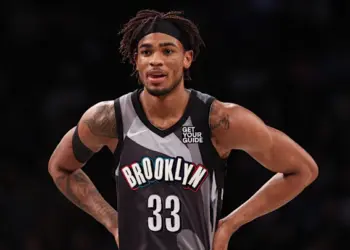
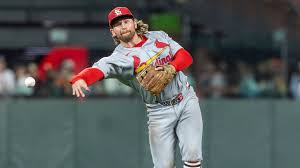
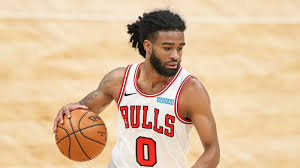
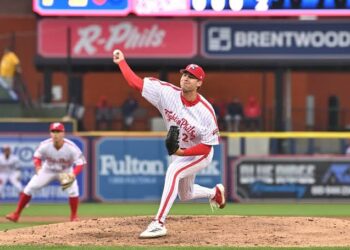
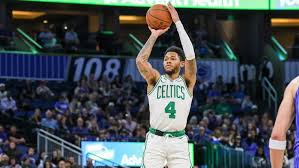
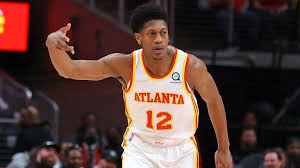
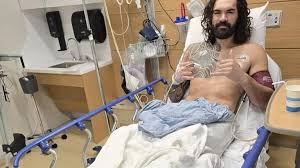
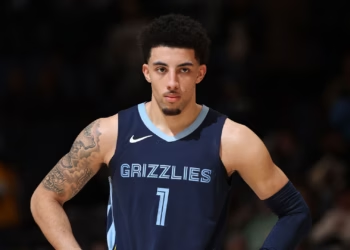


Discussion about this post